#cancer prevention through diet
Explore tagged Tumblr posts
Text
Nourishing the Immune System and Cancer Prevention Through Diet
youtube
Nourishing the immune system and potentially preventing cancer through diet is a topic that has gained significant attention in the field of nutrition and health. While a healthy diet can play a role in supporting immune function and reducing the risk of certain types of cancers, it's important to note that diet is just one aspect of overall health, and genetics, lifestyle, and other factors also play significant roles.
#cancer prevention through diet#cancer prevention#lung cancer prevention#10 ways to prevent cancer#cervical cancer prevention#ways to prevent cancer#Cancer Prevention Through Diet#Youtube
0 notes
Text
The Benefits of a Vegetarian Diet in Fighting Cancer
// PINTEREST https://tinyurl.com/thgpin // INSTAGRAM https://tinyurl.com/thgins // TWITTER https://tinyurl.com/thgtwt // YOUTUBE https://tinyurl.com/thgtube // SOUNDCLOUD https://tinyurl.com/thgpod
The Benefits of a Vegetarian Diet in Fighting Cancer Are you considering switching to a vegetarian diet? There are many health benefits to eating more plant-based foods, including a lower risk of developing cancer. In this blog post, we’ll explore the scientific evidence behind the cancer-fighting benefits of a vegetarian diet. A vegetarian diet has become increasingly popular in recent years,…

View On WordPress
#American Institute for Cancer Research recommendations#Cancer prevention through diet#Cancer prevention through plant-based foods#colon cancer#egetarian diet#esophageal cancer#fiber#Fiber and blood sugar levels#Fiber and cancer risk#Fiber and cholesterol levels#Fiber in plant-based foods#Fiber-rich foods for cancer prevention#lower risk of developing cancer#Meat consumption and cancer risk#Meat consumption and colon cancer risk#Meat consumption and esophageal cancer risk#Phytochemical-rich foods for cancer prevention#phytochemicals#Phytochemicals and cancer prevention#Phytochemicals in plant-based foods#Plant-based diet and lower cancer risk#Plant-based diet recommendations#plant-based foods#Plant-based foods and bowel management#Plant-based foods and cancer risk#Plant-based foods and immune system#Plant-based foods for cancer prevention#processed meat#Processed meat and cancer risk#Processed meat and colon cancer
0 notes
Text
Amazing addition to tomato sauce, it tends to blend well with other flavors and helps create a whole new flavor, enriching and complexifying nourishment.
#healthy#health#pro-health#healing#cancer prevention#disease prevention#let thy food be they medicine#how to eat healthy#tahini#vitamins#minerals#antioxidants#how to heal#healing with food#healing through diet#healthy food
0 notes
Text

I’m not sure if it’s the COVID, the pasta I inhaled first thing this morning after six days of no eating or the chocolate croissant a friend dropped by for my birthday, but I took a solid two- hour nap outside in my lounger with just my feet poking out in the hot sunshine. And it was glorious.
I haven’t had morning coffee for a week now and I might try giving it up? I love the ritual of it so much but the caffeine headaches - if I don’t drink it first thing - are annoying. I can always pick it back up again if I miss it. I know I need to research diets that are good for preventing cancer but I’m just meh about it at the moment. It will come in time.
For anyone who has had COVID recently, how long did it take you to get over it? I never lost my taste or smell but it’s day seven and I am still coughing up so much crap, and feel tired- I did take Paxlovid so I’m hoping I don’t get the delay that can come with it. What was the timeline for you? I guess the chemo might have impacted my ability to get better faster but I don’t really know.
Buddy loves it when I hang out in the lounger, she jumps up as soon as I snuggle in and stays all day. Out of the two cats, she changes up her sleep spots the most - for months, she’s slept on the right corner of my bed at night but now she loves the guest room rug. Before that, it was the living room rug so I think we both love this routine because she gets lots of pets and attention, which she loves. Minnie is also loving pets so much more than she ever has but she keeps them very limited to when she’s on my bed. Other than that, she’s under her blanket on the outdoor sofa. I find their little rituals so endearing.
I might try to go see the comet again tonight, it was just so incredibly cool. I doubt it’s visible through the naked eye but maybe!
20 notes
·
View notes
Text
Comprehensive Benefits of a Plant-Based Diet: Health, Environment, and Beyond
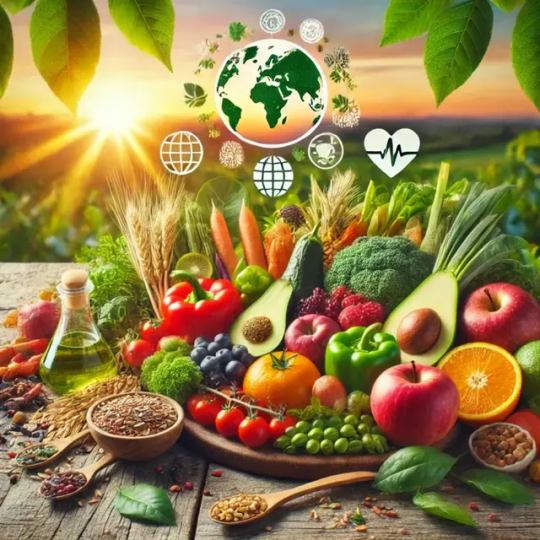
Adopting a plant-based diet can have numerous benefits for your health, the environment, and animal welfare. Here’s a detailed breakdown:
Health Benefits
Improved Heart Health
Plant-based diets are rich in fiber, antioxidants, and healthy fats, which help lower LDL (“bad”) cholesterol and blood pressure.
Reduces the risk of heart disease, stroke, and hypertension.
Weight Management
Plant-based diets tend to be lower in calories and high in fiber, promoting satiety and aiding weight loss or weight maintenance.
Studies show that vegetarians and vegans often have lower body mass indices (BMIs).
Reduced Risk of Chronic Diseases
Lower incidence of type 2 diabetes: Whole grains, legumes, and vegetables regulate blood sugar levels.
Reduced cancer risk: Diets high in fruits, vegetables, and legumes contain antioxidants and phytochemicals that combat cancer.
Lower inflammation: Plant-based diets reduce chronic inflammation linked to arthritis, autoimmune conditions, and other illnesses.
Better Digestive Health
High fiber content supports gut health, promotes regular bowel movements, and prevents constipation.
Encourages a diverse gut microbiome, which is linked to improved immunity and mental health.
Longevity
Studies suggest that plant-based diets are associated with a longer lifespan due to the reduced risk of chronic illnesses.
Improved Mental Health
Nutrients like magnesium, folate, and antioxidants found in plant-based foods are associated with better mood regulation and reduced symptoms of depression.
Enhanced Nutrient Intake
A plant-based diet is rich in essential vitamins (e.g., C, E, and folate), minerals (e.g., potassium, magnesium), and phytonutrients that boost overall health.
Antioxidants in plant foods neutralize free radicals, reducing cellular damage and slowing aging processes.
Improved Bone Health
Contrary to common misconceptions, plant-based diets can support strong bones through calcium-rich foods like fortified plant milks, tofu, almonds, and leafy greens.
Plant-based sources of magnesium and potassium improve bone density.
Reduced Risk of Neurodegenerative Diseases
Diets high in vegetables, fruits, nuts, and seeds have been linked to a lower risk of Alzheimer’s disease and cognitive decline.
Omega-3 fatty acids from plant sources like flaxseeds, chia seeds, and walnuts support brain health.
Boosted Immune System
Plant-based foods contain immune-supporting vitamins (e.g., vitamin C from citrus fruits) and zinc from legumes, nuts, and seeds.
Improved Skin Health
High intake of water-rich foods like fruits and vegetables hydrates the skin.
Antioxidants (e.g., beta-carotene in carrots, and lycopene in tomatoes) help reduce acne, prevent sun damage, and promote a glowing complexion.
read full article only at https://fitnessproguru.com/healthy-diet/comprehensive-benefits-of-a-plant-based-diet-health-environment-and-beyond/
#fitness#fitnessmotivation#healthcare#health & fitness#health and wellness#mental health#vegan#veganfood#go vegan
4 notes
·
View notes
Text
10 shocking stories the media buried today.
The Vigilant Fox
Oct 24, 2024
#10 - Doctors who defied the COVID narrative compile 18 alternative cancer treatments that WORK!
These interventions are not only backed by science, but most of them are affordable or completely free.
The first anti-cancer therapy is glucose management through a ketogenic diet. By drastically reducing carbohydrate intake, the ketogenic diet helps starve cancer cells of their primary fuel source, glucose, according to
The FLCCC Alliance
.
Second on the list is exercise. The report says that regular physical activity boosts immune function (critical for fighting cancer), reduces inflammation, and combats fatigue.
Vitamin D3 is also essential. The report says, “Low levels of vitamin D have been linked to an increased risk of cancer. Supplementing with vitamin D3 may support the immune system and help prevent cancer cell proliferation.”
One of the more interesting items on the list is the inclusion of Ivermectin and Fenbendazole. Ivermectin is believed to “interfere with cellular processes essential for cancer cell viability,” whereas Fenbendazole inhibits cancer cell division and induces cancer cell death.
Here are all 18 therapies ranked in order, as compiled by
The FLCCC Alliance
:
1. Glucose Management & Keto Diet
2. Exercise
3. Stress Reduction, Sleep, and Sunshine
4. Vitamin D3
5. Propranolol
6. Melatonin
7. Metformin
8. Curcumin (Nanocurcumin)
9. Ivermectin
10. Mebendazole/Fenbendazole/Albendazole
11. Green Tea
12. Omega-3 Fatty Acids
13. Berberine
14. Atorvastatin or Simvastatin
15. Sildenafil, Tadalafil, and Vardenafil
16. Disulfiram
17. Ashwagandha
18. Itraconazole
Read the full details about each treatment here.
4 notes
·
View notes
Text
The Power of Plant-Based: A Guide to Veganism
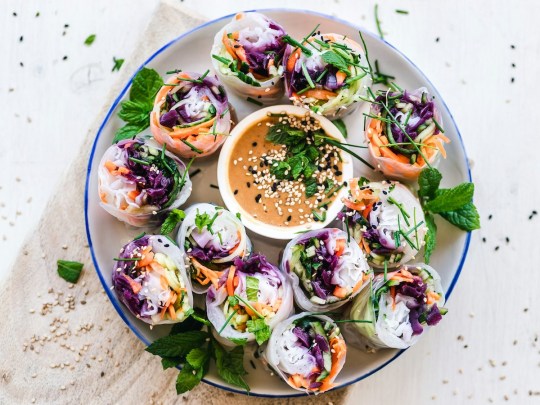
Veganism has gained significant traction in recent years, and for good reason. It's not just a passing trend; it's a movement that aligns with our desire for a healthier, more sustainable planet. By adopting a plant-based lifestyle, individuals contribute to their own well-being while making a positive impact on the world around them. The power of plant-based living is becoming increasingly evident as veganism is not just a dietary choice, it's a lifestyle that encompasses compassion, health, and environmental consciousness. Discover the principles of veganism, the health benefits of a plant-based diet, its environmental impact, ethical considerations, tips for transitioning to a vegan lifestyle, and addressing common concerns.
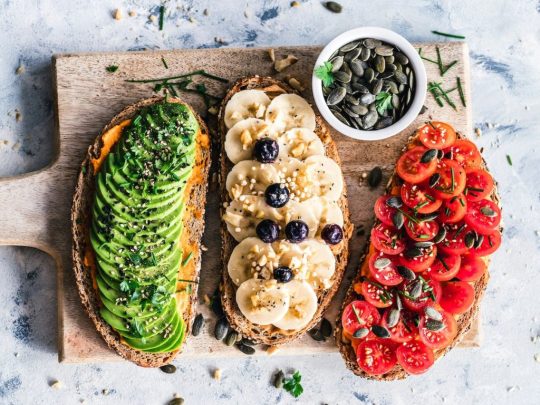
What is Veganism? At its core, veganism is a philosophy that seeks to exclude all forms of animal exploitation and cruelty, whether in diet, clothing, or any other aspect of life. It's an ethical stance that promotes compassion towards all sentient beings and recognizes the interconnectedness of humans, animals, and the environment. Health Benefits of a Plant-Based Diet Embracing a plant-based diet can have profound effects on our well-being, and there are significant health benefits: Nutritional Advantages: Plant-based diets are rich in vitamins, minerals, and fiber, providing essential nutrients for optimal health. Disease Prevention: Studies have shown that plant-based diets can reduce the risk of chronic diseases such as heart disease, diabetes, and certain types of cancer. Weight Management: A plant-based diet, when balanced and varied, can support healthy weight loss and weight management.
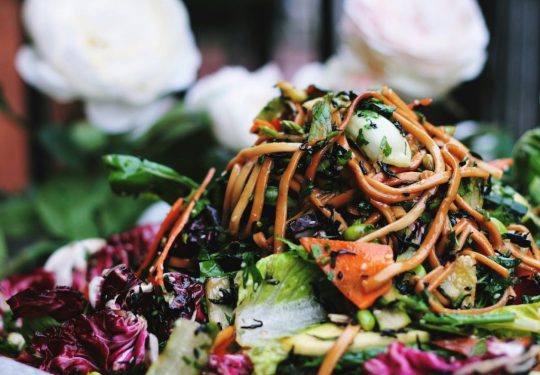
Environmental Impact of Veganism The environmental consequences of animal agriculture are staggering. By adopting a vegan lifestyle, we can significantly reduce our ecological footprint. Reduction of Greenhouse Gas Emissions: Animal agriculture is a major contributor to greenhouse gas emissions. By eliminating animal products from our diet, we can reduce our carbon footprint. Conservation of Resources: Animal agriculture requires vast amounts of land, water, and feed. Shifting to plant-based alternatives allows for more efficient use of resources. Preservation of Wildlife: Animal agriculture is a leading cause of deforestation and habitat destruction. Choosing plant-based options helps protect biodiversity and wildlife habitats. Ethical Considerations Ethics is at the core of veganism. By adopting a vegan lifestyle, we actively express our compassion for animals and advocate for their rights. Veganism encourages the use of cruelty-free alternatives and challenges societal norms regarding the treatment of animals. Tips for Transitioning to a Vegan Lifestyle Transitioning to a vegan lifestyle can be a gradual process. Here are some tips to help you navigate the journey: Gradual Changes and Substitutions: Start by incorporating more plant-based foods into your diet and gradually eliminate animal products. Meal Planning and Grocery Shopping: Plan your meals in advance and explore the abundance of vegan options available. Stock your pantry with wholesome plant-based ingredients. Seek Support and Community: Connect with like-minded individuals, join vegan groups, and seek support from friends and family who understand and respect your choices. Addressing Common Concerns Transitioning to a vegan lifestyle often comes with questions and concerns. Let's address some common ones: Protein Intake: Plant-based diets can provide ample protein through sources such as legumes, tofu, tempeh, and quinoa. Nutrient Deficiencies: With proper planning and a varied diet, vegans can meet their nutritional needs. Pay attention to sources of vitamins B12, iron, and omega-3 fatty acids. Social Challenges: Dining out or attending social events as a vegan may require some adjustments. Communicate your dietary preferences in advance, and be prepared with vegan-friendly alternatives.
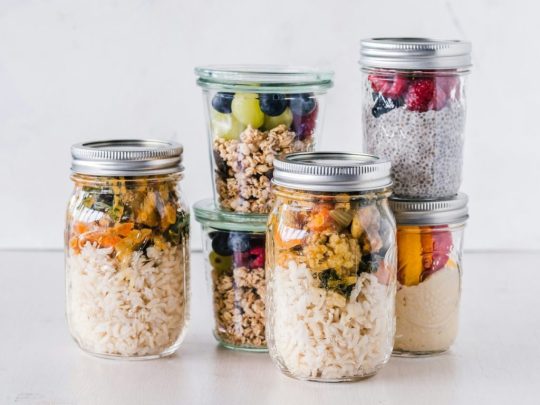
Vegan Recipe Suggestions Here are a few easy to prepare and delicious vegan recipe suggestions to try: Vegan Buddha Bowl: A colorful and nourishing bowl packed with a variety of vegetables, whole grains, and plant proteins. Black Bean Tacos: Flavorful and satisfying, these tacos showcase how classic dishes can be made vegan without sacrificing taste. Overnight Oats: A simple and nutritious breakfast option that can be customized with your favorite toppings and flavors. Lentil Bolognese: A hearty and comforting meal that highlights the protein potential in vegan foods. Additional Resources For further exploration of veganism and its benefits, here are some recommended resources: "How Not to Die" by Dr. Michael Greger: A comprehensive book that extensively covers the health benefits of a plant-based diet. "Forks Over Knives" documentary: A compelling film that explores the correlation between diet and disease, highlighting the power of plant-based nutrition. The Vegan Society website: A comprehensive online resource for anyone interested in veganism. It offers a range of information from basic principles to practical advice, recipes, and more. "Earthlings" documentary: A thought-provoking film that sheds light on the ethics of animal use in various industries, encouraging viewers to reevaluate their choices. Transitioning to a vegan lifestyle is not just a personal choice but it should be a conscious decision to make a positive impact on your health, the environment, and to do your part in protecting animal welfare. Start living a plant-based lifestyle and contribute to a more sustainable and compassionate world today. Every step you take on this journey matters. Embrace the power of plants, explore new flavors, and savor the incredible benefits that veganism brings to your life. Read the full article
12 notes
·
View notes
Text
Food Rant??
Imma be mad if y'all are being tricked by food companies so here....
Topics covered: instant coffee, "raw milk", double hydration / gatorade, and nitrate free meats
If you are stuck depending on instant coffee, you can get a Vietnamese Metal Coffee Filter to make coffee with hot water and coffee grounds. It's a great alternative if you only have hot water or don't have a coffee machine or stovetop. They range at about 7ish American dollars for a cheap one. Robusta beans are a form of coffee bean that is "cheaper" than other coffee beans and are often used in instant coffee, an already cheap product. The global prices for coffee beans can be pretty low compared to the labor of them, so being able to buy from a trusted company is really important. If you wanted to try a different coffee from a different brand, hopefully now you can. That or doing something like switching to tea or a less labor-intensive product can help farmers a lot. :D
Read More (3): https://stories.publiceye.ch/nestle-coffee/ (public eye), https://www.nestle.com/ask-nestle/human-rights/answers/paying-coffee-farmers-mexico-fair-prices (nestle directly), https://www.business-humanrights.org/en/latest-news/mexico-coffee-farmers-accuse-nestlé-of-a-ruthless-purchasing-policy-they-cant-afford-basic-needs-response-from-nestlé/ (Business + Human Rights Center)
This one is more influencers.... :/
A fortified food is a food where an important nutrient has been added, usually to prevent disease or malnourishment. For instance, many milks are fortified with Vitamin D. Vitamin D does not occur naturally in milk, BUT it is super important for the absorption of calcium. One of the main ways most people get calcium is through milk products, and Vitamin D deficiency is REALLY REALLLLLLY common. Decades ago, so was calcium deficiency which hurt a lot of people's health. To prevent that calcium in milk from not being absorbed, Vitamin D is added (usually by government regulation in a lot of places but it's also super common otherwise).
Plus, a lack of Vitamin D has other health problems associated with it like depression and cancer.
I hate when people say "raw milk" is healthier for you because it's "unprocessed". I'm so sad about it. A "process" is literally anything that people do to the ingredients of a food before selling it. "Unprocessed" means an unfinished product. Unprocessed foods aren't always dangerous or anything, but milk is kind of the exception. Yes, the chance of "raw milk" itself hurting you is pretty low, but you're avoiding all the things that make milk so healthy. People put so much effort into making you that processed milk. :'(
Unfortunately, "Nutritionist" isn't a designated term for a healthcare professional. Someone is often just trying to sell you a brand or lifestyle.
Read More (2): (both from NIH) https://www.ncbi.nlm.nih.gov/books/NBK532266/ (VD Deficiency), https://pmc.ncbi.nlm.nih.gov/articles/PMC6116165/ (About Fortified Milk)
Gatorade, Double Hydration, and other hydration drinks rely on Oral Rehydration Therapy (ORT). ORT is a rehydration technique involving salt, sugar, and water which all need to be absorbed together. The solution can often be made at home.
Recipe: 6 teaspoons sugar, 1/2 teaspoon salt, and one liter of water (it can vary from place to place because different areas have different intakes of salt and sugar in their diets but it's mostly the same)
It won't have the same flavor though. It's just important to know the basic science behind those drinks and that they're easy to make at home, so you can if you need.
Read More (2): (both from NIH) https://pmc.ncbi.nlm.nih.gov/articles/PMC9464461/ (basics), https://pmc.ncbi.nlm.nih.gov/articles/PMC3043760/ (current advances)
Here's a bonus article about meat labeled "nitrate free" from the American Institute for Cancer Research: https://www.aicr.org/resources/blog/healthtalk-will-hot-dogs-and-bacon-preserved-with-celery-powder-still-increase-my-cancer-risk/
...they have the same health risks and they're LITERALLY not nitrate free because *cELerY sAlt
*celery salt
#im new here so idk how to tag :P#coffee#food#gatorade#I feel like it would go badly if I put “milk” as a tag#imma leave it like this.....
3 notes
·
View notes
Text
Article Review - The Liver After Quitting Alcohol
Here is a quick summary/reflection on this article:
1. The liver is introduced as the largest internal organ and that it functions to break down toxins like alcohol. When alcohol is consumed excessively (more than 14 units), the liver undergoes the following changes: becomes fatty > healing from inflammation forming scars > many scars forming cirrhosis > liver fails > fatal outcomes. Symptoms associated with liver dysfunction are exhibited at late stages of impact.
2. Quitting alcohol has varying effects, depending on the condition of the liver. At the fatty stage, two to three weeks are sufficient to heal it back to normal appearance and function. For mild scarring/inflammation, a week can show significant improvements in the condition although full recovery may take months. With advanced cirrhosis or liver failure (where the liver is unlikely to cure itself completely), worsening of the condition or death could be prevented if followed through for many years. However, this withdrawal cannot be done suddenly, as it poses physical and psychological dangers and a medical professional has to be involved in planning a safe quitting programme in such cases.
3. Giving up alcohol also reflects benefits beyond the liver and improves outcomes in sleep, brain function and blood health. It also prevents cancer and cardiovascular diseases. Quitting should be integrated with practices like a good diet and regular physical activity to observe the best results.
In conclusion, this article was really insightful as an understanding of the liver’s power. I think anyone interested in the human body would find the author’s writing to be useful.
Disclaimer: This is purely a concise reflection on the points presented in the article. These are not my advice/opinions at all. I am only posting knowledge. Always seek a medical professional for healthcare assistance.
Follow @studyhaus for more articles!
#learning#studyblr#study#knowledge#science#technology#healthcare#medicine#article#reading#study motivation#study blog#studying#study notes#news#research#article review
12 notes
·
View notes
Text
youtube
Be Wise - Strive For Total Wealth
Achieving a fulfilling life requires more than just financial success; it demands a balance of material, physical, and spiritual wealth. This comprehensive approach, known as total wealth, ensures a well-rounded this website existence free from the limitations often imposed by lacking in any one area. Explore how integrating these three aspects can lead to a richer, more satisfying life.
Material Wealth: More Than Just Money
Material wealth, often the most pursued form of wealth, includes money, assets, and property. While financial stability can alleviate many stresses, it's not a standalone solution for happiness. According to a report by the Federal Reserve, the average net worth of a U.S. household was approximately $746,821 in 2019. However, despite high income levels, many still experience dissatisfaction, highlighting the insufficiency of material wealth alone.
Physical Wealth: Health as a Priority
Physical wealth is fundamentally about health and well-being. The adage "health is wealth" truly encapsulates this concept, suggesting that without good health, our abilities to perform daily activities and enjoy life are severely hindered. The Centers for Disease Control and Prevention (CDC) emphasizes the importance of regular physical activity to prevent chronic diseases such as heart disease, cancer, and diabetes, which are the leading causes of death and disability in the United States.
Spiritual Wealth: The Overlooked Treasure
Spiritual wealth involves a deep sense of fulfillment, peace, and purpose, often derived from relationships, personal beliefs, and a connection to a higher purpose. Despite its profound impact on overall happiness, it is frequently the most neglected. A Pew Research Center study on religion and living arrangements around the world in 2019 found that actively engaging in spiritual practices is linked to greater happiness and communal involvement.
The Holistic Model of Success: Total Wealth
To truly thrive, one must cultivate all three types of wealth. This holistic model addresses the comprehensive needs of an individual, ensuring a balanced and enriched life. Here are key strategies to achieve total wealth:
Financial Planning: Engage in smart financial planning and investments. Educate yourself about financial management or consult with a financial advisor.
Health Maintenance: Adopt a healthy lifestyle that includes regular exercise, a balanced diet, and sufficient sleep. Regular health check-ups are crucial.
Spiritual Growth: Invest time in personal development and spiritual exploration. Whether through meditation, religious practices, or self-reflection, find what fulfills you spiritually.
2 notes
·
View notes
Text
Thyroid: A Comprehensive Guide
The thyroid gland, a small butterfly-shaped organ located at the base of the neck, is a powerhouse for regulating essential bodily functions like metabolism, energy levels, and hormone balance. Unlike temporary health concerns such as diarrhea, thyroid conditions often require long-term care and attention to maintain overall health.
This blog explores the thyroid's role, common disorders, symptoms, causes, treatments, and tips for keeping it healthy.
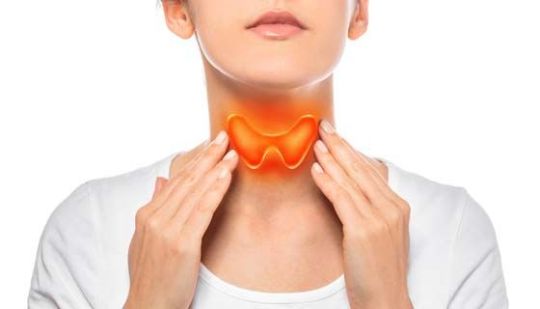
What is the Thyroid Gland?
The thyroid gland produces two primary hormones:
Triiodothyronine (T3)
Thyroxine (T4)
These hormones regulate metabolism, which influences energy use, body temperature, and weight. The gland's activity is managed by the pituitary gland through thyroid-stimulating hormone (TSH), ensuring proper hormone levels are maintained.
Common Thyroid Disorders
Hypothyroidism (Underactive Thyroid)
What Happens? Insufficient hormone production slows the body’s metabolism.
Symptoms:
Fatigue
Weight gain
Hair thinning
Dry skin
Sensitivity to cold
Depression
Causes:
Hashimoto's thyroiditis (an autoimmune condition)
Iodine deficiency
Thyroid surgery or radiation therapy
Treatment:
Synthetic hormone replacement (e.g., Levothyroxine)
Hyperthyroidism (Overactive Thyroid)
What Happens? Excessive hormone production speeds up metabolism.
Symptoms:
Weight loss
Anxiety
Palpitations
Excessive sweating
Tremors
Insomnia
Causes:
Graves' disease (an autoimmune disorder)
Thyroid nodules
Overconsumption of iodine
Treatment:
Antithyroid medications
Radioactive iodine therapy
Surgery in severe cases
Thyroid Nodules and Cancer
Nodules: Lumps in the thyroid that may cause imbalances or indicate cancer.
Cancer: Rare but treatable with early detection. Symptoms include a persistent lump in the neck or difficulty swallowing.
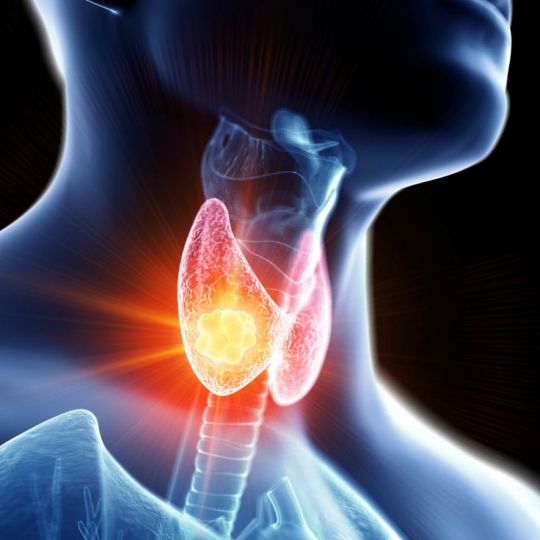
Tips for Maintaining Thyroid Health
Balanced Nutrition:
Eat iodine-rich foods like fish, dairy, and iodized salt.
Include selenium (e.g., Brazil nuts) and zinc (e.g., nuts, seeds) in your diet.
Regular Checkups:
Monitor hormone levels if you have a family history or symptoms.
Stay Active:
Exercise reduces stress and helps regulate metabolism.
Stress Management:
Techniques like yoga or meditation can improve hormonal balance.
Avoid Self-Medication:
Excess iodine or unprescribed supplements can worsen thyroid issues.
When to Seek Medical Attention
If you experience symptoms like persistent fatigue, weight changes, or swelling in the neck, consult a doctor immediately. Early diagnosis and treatment are key to preventing complications such as heart disease, infertility, or severe metabolic imbalances. Your thyroid’s health is essential for your overall well-being. Addressing thyroid concerns early can significantly improve your quality of life.
For more expert advice on thyroid health and personalized consultations, visit CongoRx. Learn more about thyroid care and related conditions, or explore our blogs like diarrhea causes and symptoms.
2 notes
·
View notes
Text
Nourishing the Immune System and Cancer Prevention Through Diet
youtube
Nourishing the immune system and potentially preventing cancer through diet is a topic that has gained significant attention in the field of nutrition and health. While a healthy diet can play a role in supporting immune function and reducing the risk of certain types of cancers, it's important to note that diet is just one aspect of overall health, and genetics, lifestyle, and other factors also play significant roles.
#cancer prevention through diet#cancer prevention#lung cancer prevention#10 ways to prevent cancer#cervical cancer prevention#ways to prevent cancer#Cancer Prevention Through Diet#Youtube
0 notes
Text














World Heart Day
Heart Day is part of an international campaign to spread awareness about heart disease and stroke prevention. This is the perfect day to quit smoking, get exercising and start eating healthy – all in the name of keeping your ticker in good working order, and improving the health and well being of people the world over.
Learn about World Heart Day
The World Heart Federation have found that heart disease and strokes are the world’s leading cause of death, killing 17.1 million people every year – that’s more than victims of cancer, HIV and AIDS and malaria.
Overeating, lack of exercise, unhealthy diets and high blood pressure, cholesterol and glucose levels are all factors which can trigger heart disease and threaten our own lives, and those of loved ones. Heart Day was set up to drive home the message that heart problems can be prevented.
History of World Heart Day
The aim is to improve health globally by encouraging people to make lifestyle changes and promoting education internationally about ways to be good to your heart. This lesson is becoming increasingly relevant as reports of obesity, poor diet and physical inactivity in children and young people become more and more common.
Events take place to promote healthy hearts. Charities and other organisations coordinate walks and runs, health checks, public talks, shows and exhibitions to name a few of the interesting and informative events which mark the day. So on Heart Day, get involved, eat your fruit and veg and get outside; both you and your heart will feel the benefits.
World Heart Day is celebrated every year. It was created by the World Heart Federation. The first World Heart Day took place back in 2000. Since then, in 2012, leaders from around the globe committed to the reduction of worldwide mortality from non-communicable diseases by 25 percent by 2025.
Did you know that almost half of the NCD deaths happen because of cardiovascular disease? This makes it the biggest killer across the world. Therefore, World Heart Day is the perfect platform for the community to come together in the battle against cardiovascular disease and lower the worldwide disease burden.
How to observe World Heart Day
As World Heart Day is all about drawing people’s attention to heart diseases and illnesses, as well as the range of health issues that are associated with this, it makes sense to raise awareness and also improve your own understanding. We would recommend taking some time to do a bit of research about heart conditions and risk factors. You can then use your online platforms and your social groups in order to raise awareness.
There are both non-governmental and governmental organizations that take part in this date around the world. They do this through the organization of science fairs, exhibitions, fitness sessions, public talks, walks, and marathons. Some famous buildings, monuments, and landmarks opt to go red on this date so that they can show their support for cardiovascular disease awareness.
If you are opting to celebrate this day, it is important to try and be more attentive to your own heart health. There are a number of different ways that you can do this. This includes following a healthy diet, quitting alcohol, stopping smoking, and getting involved in physical exercises. It is also important to have your cholesterol, blood pressure, and heart checked on a regular basis.
It is a good idea to take a look online to see if there are any events that are going on in your local area. If there are not, how about organizing an event yourself? All you need is an idea that is going to get the community involved and raise awareness for heart disease. This could be anything from a fun run to a community fair. It is up to you.
You don’t need to do an event on such a big scale either. You could gather your friends and family members and host a fun event, educating them on the issues and asking them to make a donation. Other ways to fundraise include making crafts and then donating the proceeds to a heart foundation or charity.
There are a lot of different charities and organizations that are doing great work when it comes to raising awareness and finding cures for different heart problems. We are sure that they would appreciate a donation, whether this is a donation of your time, money, or both! After all, anything that you can do can make a difference to someone’s life, so do not underestimate the role that you can play.
Source
#Davie Village#Vancouver#Forever in my Heart by James Cable#Alamosa#Napa#Paradise#Heartfullness Vegas by Katy Boynton#Take Heart by Patricia Vader#World Heart Day#WorldHeartDay#29 September#public art#sculpture#USA#Canada#travel#original photography#Distillery Historic District#Toronto#summer 2015#2019#vacation#cityscape#architecture#Glenn Gould Gathering by Ruth Abernethy#Sacred Heart of Jesus#Trois-Rivières#Hotel Château Gütsch#Luzern#Lucerne
2 notes
·
View notes
Text
Ways To Maintain A Healthy Lifestyle
Get plenty of sleep
Adequate sleep is crucial for body recovery, cell repair, and growth, with optimal growth hormone release during deep sleep. Aim for 7-9 hours daily.
Exercise Regularly
Regular exercise strengthens your heart, boosts your mood, and increases energy levels. Find activities you enjoy and aim for at least 30 minutes of moderate activity most days of the week.
Practice Balanced Diet Habits
A balanced diet is crucial for maintaining a healthy body, containing essential nutrients for optimal growth, cell repair, and organ function.
Avoid Smoking and Excessive Alcohol Consumption
Smoking and excessive alcohol consumption can increase the risk of many serious diseases, including heart disease, cancer and liver disorders.
Maintain Body Hygiene
Keeping your body clean is also an important step in maintaining overall health. Body hygiene helps preventing the spread of disease, preserves the skin, and provides a feeling of freshness.
Stay Hydrated
Water is crucial for a healthy body, as it aids in fluid balance, digestion, temperature regulation, and supporting vital organ function.
Minimize Your Sugar Intake
Added sugar is extremely prevalent in modern food and drinks. A high intake is linked to obesity, type 2 diabetes, and heart disease.
Stress Management
Stress triggers various illnesses like migraines and heart problems. Relieve stress through activities like watching movies, painting, or listening to music.
Take Your Vitamins
Multivitamins are essential for maintaining health, providing essential vitamins and minerals, despite varying diets and dietary habits. Research options to find a suitable multivitamin for your needs.
Eat More Vegetables
Vegetables contain many vitamins, minerals, and antioxidants that can fend off chronic disease and help us maintain a healthy life.
2 notes
·
View notes
Text
🌿 Your Skin Deserves Love: Why Protecting the Body’s Largest Organ Is Crucial! 🌿
Your skin isn’t just a barrier between you and the world—it’s a vital organ that deserves all the care and attention you can give it. At Comfort Mind Body, we believe in the power of protecting your skin to ensure it stays healthy, glowing, and strong. Here’s why you should prioritize your skin health every single day! 💚
Why Is Skin Protection So Important? Your skin is your body’s first line of defense against the outside world. It shields you from harmful UV rays, pollution, bacteria, and more. But without proper care, this incredible organ can become vulnerable to damage, premature aging, and even serious health conditions. 🌞
Simple Steps to Protect Your Skin:
Daily SPF is Non-Negotiable: Sunscreen isn’t just for beach days! Apply a broad-spectrum SPF every day, rain or shine, to protect your skin from the harmful effects of UV rays, which can cause premature aging and increase the risk of skin cancer. 🌅
Stay Hydrated: Hydration is key to maintaining your skin’s elasticity and glow. Drink plenty of water and use moisturizers to keep your skin soft, supple, and resilient. 💧
Cleanse Gently: Your skin goes through a lot each day, from exposure to pollutants to makeup. Use a gentle cleanser to remove dirt and impurities without stripping your skin’s natural oils. 🌸
Nourish with Antioxidants: Incorporate antioxidant-rich products like Vitamin C into your skincare routine. They help neutralize free radicals that can damage your skin and accelerate the aging process. 🍊
Prioritize Sleep and Stress Management: Your skin repairs itself while you sleep, so make sure you’re getting enough rest. Managing stress through relaxation techniques can also prevent stress-induced skin issues like breakouts and premature aging. 🛌
Lifestyle Tips for Healthy Skin:
Eat a Balanced Diet: A diet rich in fruits, vegetables, healthy fats, and proteins provides your skin with the nutrients it needs to stay strong and radiant. 🥑
Quit Smoking: Smoking accelerates skin aging and contributes to wrinkles. Quitting is one of the best things you can do for your skin and overall health. 🚭
Limit Alcohol: Excessive alcohol can dehydrate your skin and cause inflammation, leading to dullness and aging. Enjoy in moderation for your skin’s sake. 🍷
Your skin is more than just a surface—it’s a reflection of your overall health. Protect it, nourish it, and it will thank you by looking its best. Want to dive deeper into the importance of skin protection? Check out our full guide on Comfort Mind Body! 🌿
Discover more skin care tips at Comfort Mind Body! [Link in bio] 💚
#beauty#self care#skincare tips#skincare routine#anti aging#skincare#skincaremagic#skin#anti age#body care
2 notes
·
View notes
Text
Our teeth are our only permanent body part, so it makes sense that they must be cared for if you are going to live a long, healthy life. Unlike the rest of our body, once formed, they are not continually rebuilt through routine metabolism. Teeth are, under healthy conditions, essentially indestructible, as demonstrated by fossil records and forensic medicine. Yet, as we go about our daily lives, microorganisms constantly assault our teeth. This battle results in dental infections, a universal affliction of humankind — the discomfort caused by these infections and their enormous cost. Dental infections rank third in medical expenses in the United States, right behind heart disease and cancer. Furthermore, dental disease is closely linked to the development of a variety of heart diseases.
Beginning in the 1940s, a consensus emerged (particularly in the United States) that the risks and consequences of dental disease could be prevented mainly by ensuring that children consume adequate levels of a chemical called “fluoride” in their diet so that it would then be incorporated into their developing teeth. Based on this belief, most US municipal water systems began injecting fluoride into drinking water. In 2014, three-quarters of the US population on the public water supply received fluoridated water, representing two-thirds of the total US population. Despite this intervention, dental disease remains near the top of US health cost drivers. It is time to revisit the mid-20th century consensus on fluoride supplementation. The metadata indicates that the mandated intervention is not curing the problem.
Recent scientific study data, including a comprehensive evaluation by the US HHS National Toxicology Program, indicate that “higher levels of fluoride exposure, such as drinking water containing more than 1.5 milligrams of fluoride per liter, are associated with lower IQ in children.” This finding underscores a couple of central principles of pharmacology and toxicology - first, all substances (including generally beneficial supplements) are toxic at some dose. Secondly, there is no substitute for long-term studies in the species of interest (humans) because cumulative effects may not be revealed in short-term analyses. Sound familiar? Basic principles.
2 notes
·
View notes